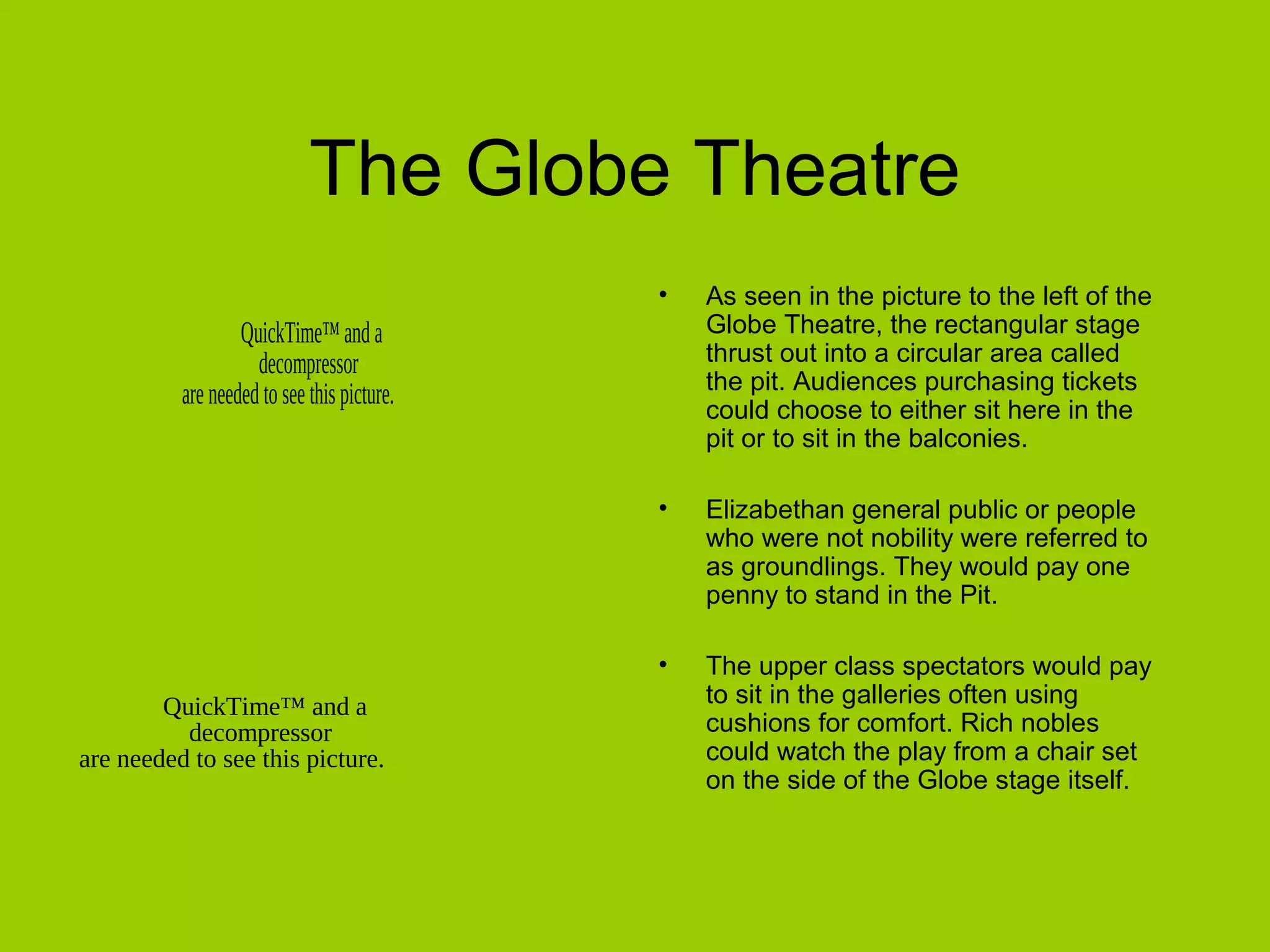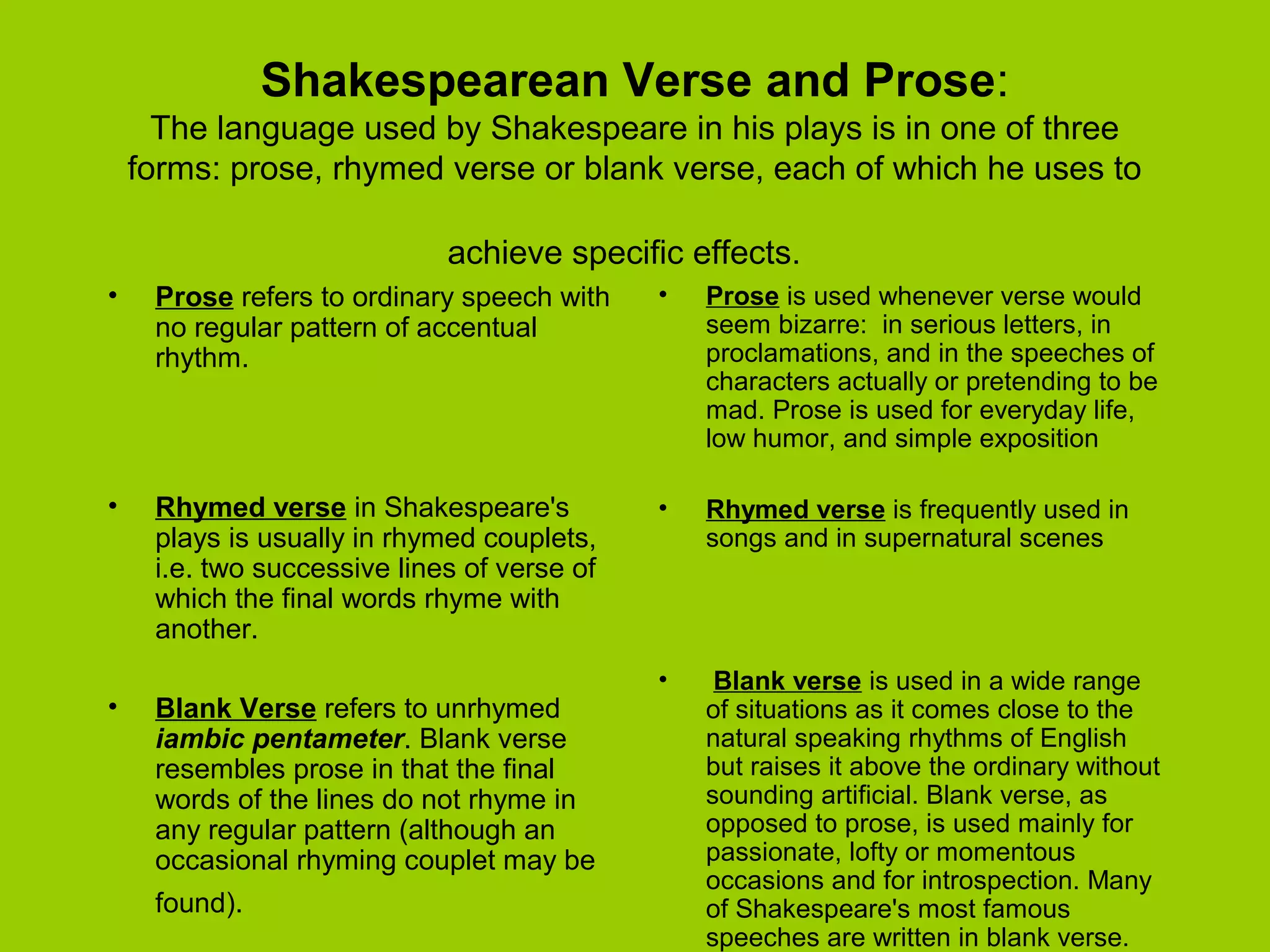William Shakespeare (1564-1616) wrote over 30 plays that are usually divided into histories, comedies, tragedies, and romances. His early plays were mainly comedies and histories, but in 1596 he wrote Romeo and Juliet, his second tragedy. Over the next dozen years he wrote many of his most famous tragedies including Julius Caesar, Hamlet, Othello, King Lear, Macbeth, and Antony and Cleopatra. Shakespeare used different forms of language - prose, rhymed verse, and blank verse - to achieve specific effects and match the tone and content of different scenes.






